January is all about Schema, at least here on the Weekend Growth. In our last post, we focused on three big and important ones for all websites: Organization, AboutPage, and ContactPage. Catch it here if you missed it.
For this post, let’s dive into the detailed approach needed for your Author schema. This post is all about connecting the dots between your website’s About Page and the various authors that write for your site.
I share a detailed approach, along with examples from popular websites.
Quick Navigation
Author Schema Markup
Author schema is specifically designed to identify the author of a piece of content. This content could be a blog post, news article, research paper, book, or any other form of creative work.
Author Schema Markup:
- Purpose: Specifically used to denote the author of a particular piece of content. This could be a blog post, article, book, etc.
- Types of Values: Can be either an organization or a person.
- Usage Context: For the purposes of our context, this should be used to attribute authorship of a specific article. It can also be used for someone who reviews your content for factual accuracy.
Author schema is particularly useful for establishing authoritativeness and expertise in a given domain.
For instance, if a recognized expert in a field authors a piece, using the Author schema can help search engines understand this connection (potentially improving the content’s visibility and credibility).
Link: See how I use Rank Math to set up various schema on my website.
Person Schema Markup
Person schema encompasses a much wider range of details about an individual. It’s not limited to the context of authorship and can include a variety of personal and professional information.
I often see a lot of confusion between Person schema and Author schema. In essence, person schema is essential for enhancing the understanding of who a person is beyond their role as a content creator (author).
But, don’t worry about Person schema. It hasn’t been supported by Google since 2020 and doesn’t show up in Google’s Rich Result test tool.
How to Set Up About and Author Page Schema
Here is how to set up and link together your About Page and Author Pages (along with the role schema has to play in both):
About Page
First and foremost, you need an About Page for your website. This is where both readers and Google learn more about your business. Yes, your website is a business.
Here are some things I recommend adding to your About Page:
- Brand story: Explain how and why the business started.
- Value proposition: Explain what the business offers.
- Company mission: Share the purpose for starting the company, and its current mission with customers.
- Features and mentions: Share the various high profile and niche relevant features, whether online or offline.
There are a lot of other things you can include, but that’s a great place to start.
Last week, we also established that your About Page needs to have AboutPage schema on it. This tells Google that this is the page where they should find these key details.
Now, onto the role of Author Schema. Generally speaking, you have two ways you can work Authors onto your site. Each has its advantages, so let’s go through each:
Option One: Include Authors on About Page
In this case, you’ll include every Author in a section of your About Page. Typically, you’ll feature their headshot, name, and role, along with a brief description of their background and expertise.
Then, you’ll link out to their individual Author page.
Let’s look at an example in the wild with The Spruce’s About Page.
First, their About Page includes a lot of the information I outlined above. They even provide a handy Table of Contents with deep links.
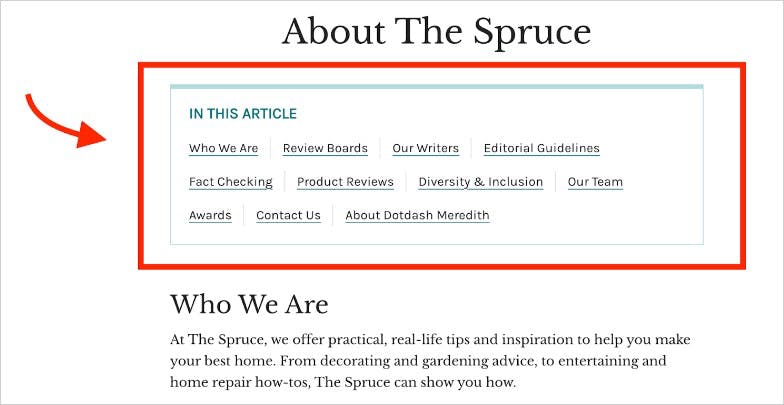
A quick test with the Google Rich Results test shows they have properly enabled AboutPage schema as well.
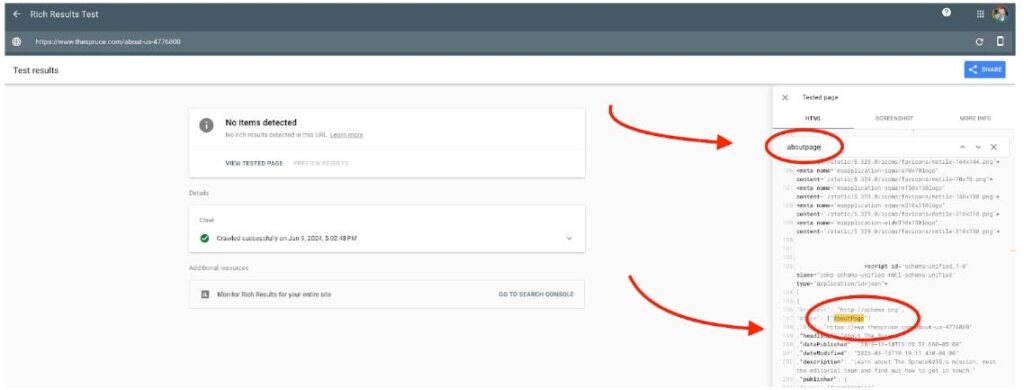
Further down the About Page, we see them include a section where they list key authors on the website.
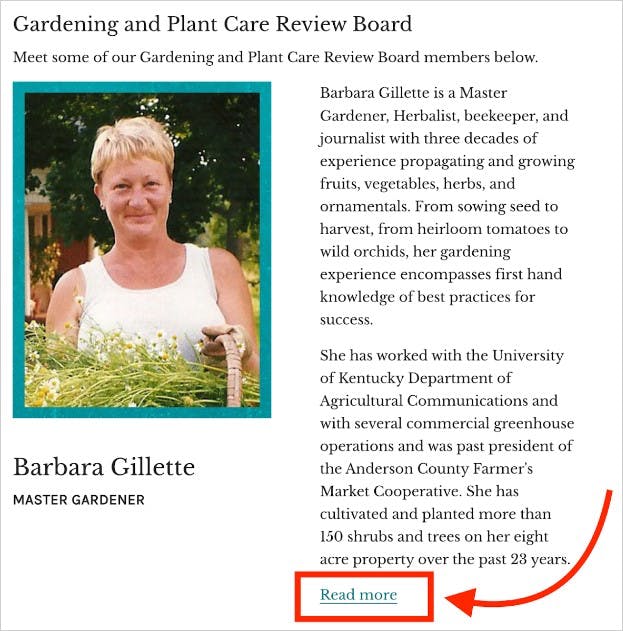
As I shared above, they feature all of the key details about the author, with a link out to their Author Page.
And then, we can see a lot of the tenants of a really good Author Page, which we’ll dive into deeper in a bit.
But, what’s important for this specific conversation is that it is THIS page (the Author’s specific bio page) where we see Author schema located.
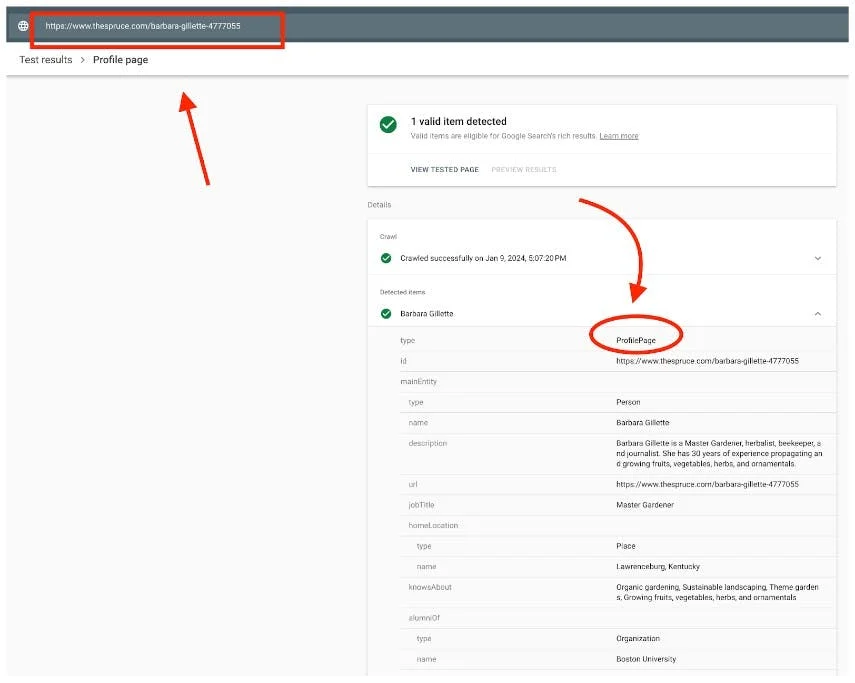
Ok, let’s take a quick look at a different way to set this up. It’s only slightly different.
Option Two: Have Authors on Separate Page
In many cases, including all of your Authors on your About Page is a bit cluttered. Plus, you could argue that the About Page is more about the website. Authors belong on their own page.
If you feel like any of this is the case for you, it’s perfectly fine to set up a separate page for something like “About the Team.” And, in this case, just make sure you include a link FROM the About Page TO the About the Team Page 🙂
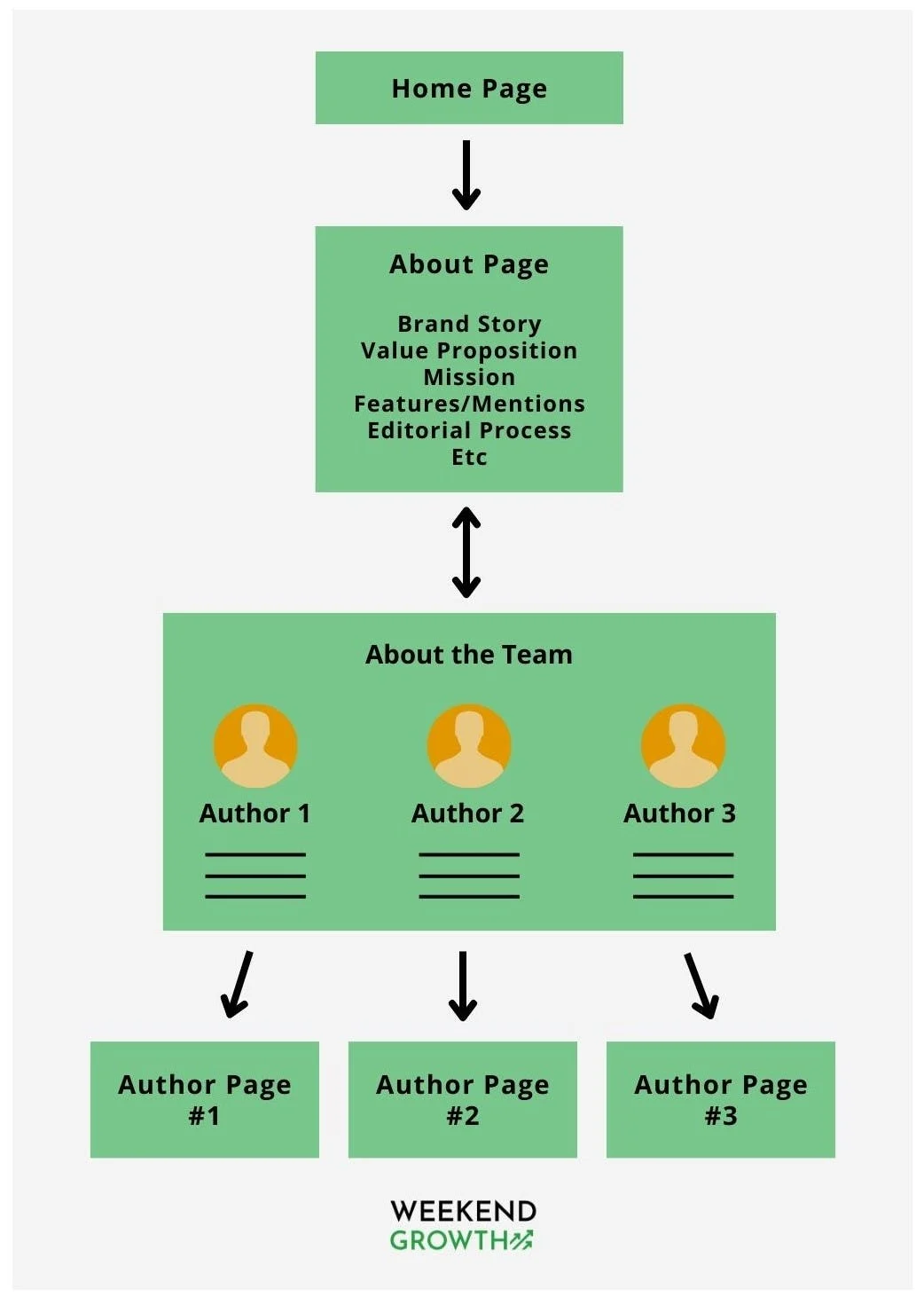
How to Set Up Author Page Schema
Now that you know WHERE to set up Author Page Schema, let’s talk about how to do it properly.
Google expanded the role of structured data as it relates to authorship in November of 2023, expanding Profile page structured data. According to Search Engine Land:
The new profile page structured data and markup is for any site where creators, either people or organizations, share first-hand perspectives. This markup will help Google highlight the creator’s name or social handle, profile photo, follower count, or the popularity of their content in the Google search results.
A note on this: Google expanding how it uses structured data to determine authorship details means using it is of increasing importance! (at least that’s how I see it)
And there is a LOT you can add to this schema! Let’s look at a few examples:
With Barbara Gillet from The Spruce, we see her home location and where she went to college. We also see what she’s an expert in with the “knowsAbout” element.
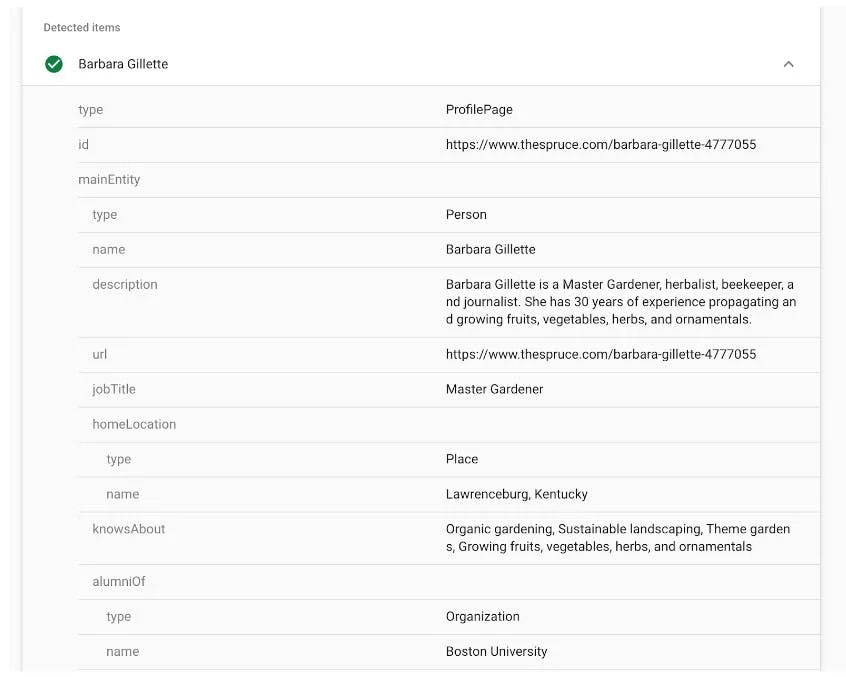
With Claudia Fisher from RealSimple.com, we learn her Instagram handle, and that she is located in New York right now.
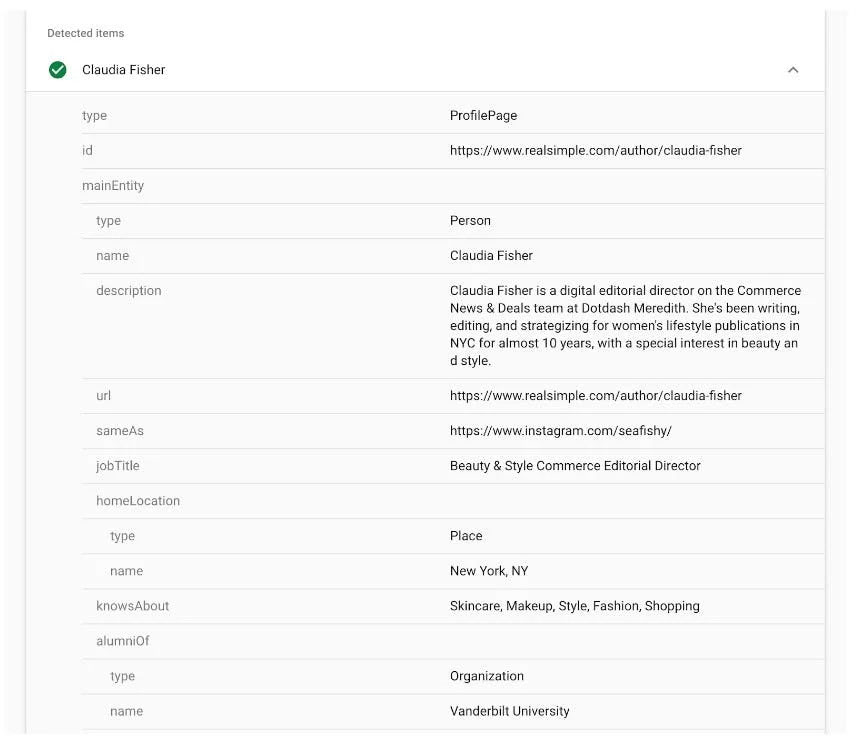
The point is – fill out as much information as you can!
Again, there are a lot of ways to add this schema to your site. I use Rank Math, and you can use this guide to make sure you have it set up properly. But like I said, there are lots of ways to take care of it.
Do I Need Real Authors?
I’m going to tread a bit lightly here.
In a nutshell – yes, you do. You need authors that have tangible experience in your niche. Things that can be seen online.
Schema then allows you to connect all that together, ensuring Google better sees and understands how it all works, thus attributing all of this to your site’s expertise.
Google is only doubling down on this, with the addition of Experience to E-E-A-T and expanding structured data roles in 2023.
Can you “fake” authors these days? Yes, you can. You’ll have to build out this “fake persona” online, substantiating that they have tangible experience in your niche. It’s possible, but not exactly easy.
It’s probably easier to work with real people who have experience, and tie it together with proper schema.
Next Steps
Alright, last week we learned how important Organization, AboutPage, and ContactPage schema is. Today we learned about Author / ProfilePage Schema, and how to set it up to contribute to your About Page.
Together, these things will really help you showcase your site’s expertise to Google.
Next week is my favorite post of all (I’ve already written it) – it’s what I consider to be schema’s secret weapon. It’s how I ensure Google really truly knows the details about my authors. It’s how my website gets credit for every single thing they’ve done.
Remember – if you need help with your schema, my agency can help out! Just reach out here and let us know what you need!
See you next week!
PS – make sure to check out my earnings and findings from November & December on the Amazon Influencer Program.

